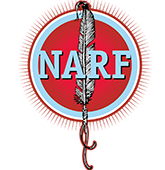Challenging the Indian Child Welfare Act: Colorblind racism, whiteness as property, and the legal architecture of settler colonialism
Bringing critical race theory and settler colonial theory to bear on legal mobilization scholarship, this article examines the ongoing campaign to strike down the 1978 Indian Child Welfare Act (ICWA). Find more information and a link to the full Law & Society Review article via the National Indian Law Library catalog.
